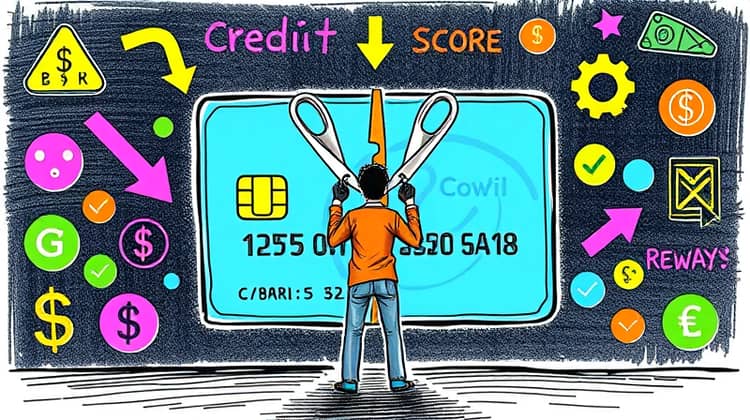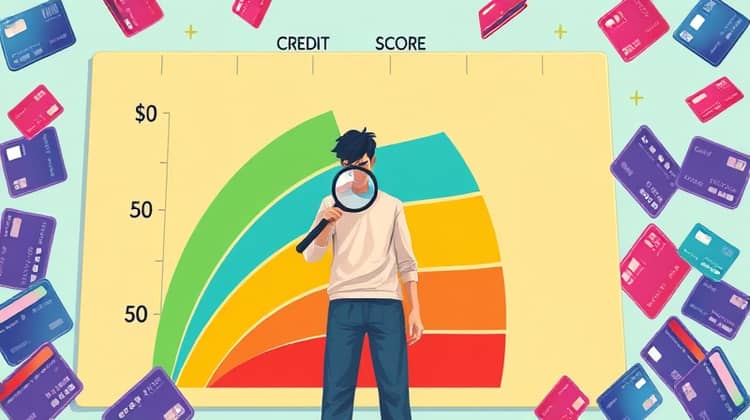Think Twice: The Financial Implications of Closing Your Credit Card

Credit cards can be both a helpful financial tool and a potential source of anxiety for many individuals. With the ability to facilitate large purchases, build credit, and even earn rewards, credit cards can significantly enhance one's financial freedom. However, the decision to close a credit card account can arise from various motivations, each carrying its own set of consequences.
Understanding the consequences of closing a credit card is essential for anyone seeking to maintain financial stability and a positive credit history. This article explores the reasons behind credit card closures, the immediate and long-term impacts on personal finances, and provides alternatives to consider before making this decision.
Why People Close Credit Cards

There are several reasons why individuals may choose to close their credit card accounts. One common motivation is to avoid accruing debt, particularly among those who struggle with managing their spending. By eliminating access to credit, they believe they can foster better financial habits and avoid the pitfalls of overspending.
Additionally, some consumers may find that they have too many credit cards, which can lead to confusion over due dates and minimum payments. Closing accounts can simplify their financial lives and reduce stress.
The Immediate Financial Impact

Closing a credit card can have immediate effects on your finances. One significant impact is the loss of available credit, which may affect your credit utilization ratio. This ratio is a key component of your credit score, indicating how much credit you are using compared to your total credit limit. A higher utilization ratio can negatively affect your credit score.
Another immediate consequence is the potential loss of rewards or benefits associated with the credit card being closed. Many credit cards offer cashback, travel rewards, or other perks that can be valuable to consumers when used effectively.
- Loss of available credit can lead to a higher credit utilization ratio, affecting your credit score.
- You may lose accumulated rewards or benefits when closing your account.
These immediate effects highlight the importance of considering how the closure of a credit card can impact not only your current financial situation but also your overall credit profile.
The Long-Term Financial Consequences

While immediate effects are important, the long-term financial consequences are equally significant. Closing a credit card can shorten your credit history, which plays a crucial role in determining your credit score. A shorter credit history may suggest to lenders that you are less experienced in managing credit, which could result in higher interest rates on loans or less favorable credit terms.
Additionally, the closure of a card can affect your credit mix, which is another factor in your credit score. A diverse credit portfolio that includes revolving credit (like credit cards) and installment loans is generally viewed more favorably by lenders.
- A shortened credit history may negatively impact your credit score over time.
- Loss of credit mix can affect your overall creditworthiness.
Therefore, while the initial decision to close a credit card might seem benign, the long-term consequences could have lasting effects on your financial health and borrowing options.
The Effect on Your Credit Score

The effect of closing a credit card on your credit score can vary significantly based on your overall credit profile. For individuals with a strong credit history and multiple cards, the impact may be minimal. However, for others, particularly those with fewer accounts, the closure of a single card can have a more pronounced effect.
It's essential to monitor your credit score closely after closing a credit card to understand how it has changed and how it may affect future lending decisions.
- An immediate drop in your credit score may occur because of the reduction in available credit.
- Monitoring your credit score after closing an account is crucial for assessing impact.
Keeping track of your credit score can help you make informed decisions about your finances and prepare for future credit applications.
The Hidden Costs

Beyond the direct financial impacts, closing a credit card can also incur hidden costs. For instance, if you have an existing balance on the card, closing it may lead to interest charges due to the increase in your credit utilization ratio.
Moreover, the loss of perks or benefits associated with the card, such as travel insurance or purchase protection, can create unforeseen financial burdens in the event of an unexpected expense.
- Potential interest charges from increased utilization can occur if not managed effectively.
- Loss of associated benefits and perks may create future costs.
These hidden costs reinforce the idea that the decision to close a credit card requires careful consideration and thorough evaluation of potential impacts.
Alternatives to Closing a Credit Card

Before deciding to close a credit card, individuals should consider several alternatives that may help maintain financial control without sacrificing access to credit. One option is to lower the credit limit on the card, which can reduce the temptation to overspend while still keeping the account open.
Another worthwhile alternative is to keep the card active by making small purchases on it periodically. This practice can preserve the credit history associated with the account and keep your credit utilization in check.
- Consider lowering the credit limit instead of closing the card.
- Keep the card active with small purchases to maintain credit history.
Exploring these alternatives can potentially help you navigate financial concerns without resorting to closing a credit card, ensuring a better balance of credit use and financial discipline. Additionally, keeping the account open maintains the benefits that come along with it.
Conclusion

In conclusion, closing a credit card is a decision that should not be taken lightly. The implications can extend far beyond the immediate desire to simplify finances or prevent overspending. Understanding both the immediate and long-term effects on your credit score and overall financial health is crucial to making the right choice.
It's essential to weigh the reasons for closing an account against the potential consequences that may arise. Alternatives such as lowering the credit limit or keeping the card active can provide viable solutions to address financial concerns without negatively impacting credit history.
Ultimately, taking a measured approach and fully exploring your options can help you make informed decisions that support your long-term financial goals.






